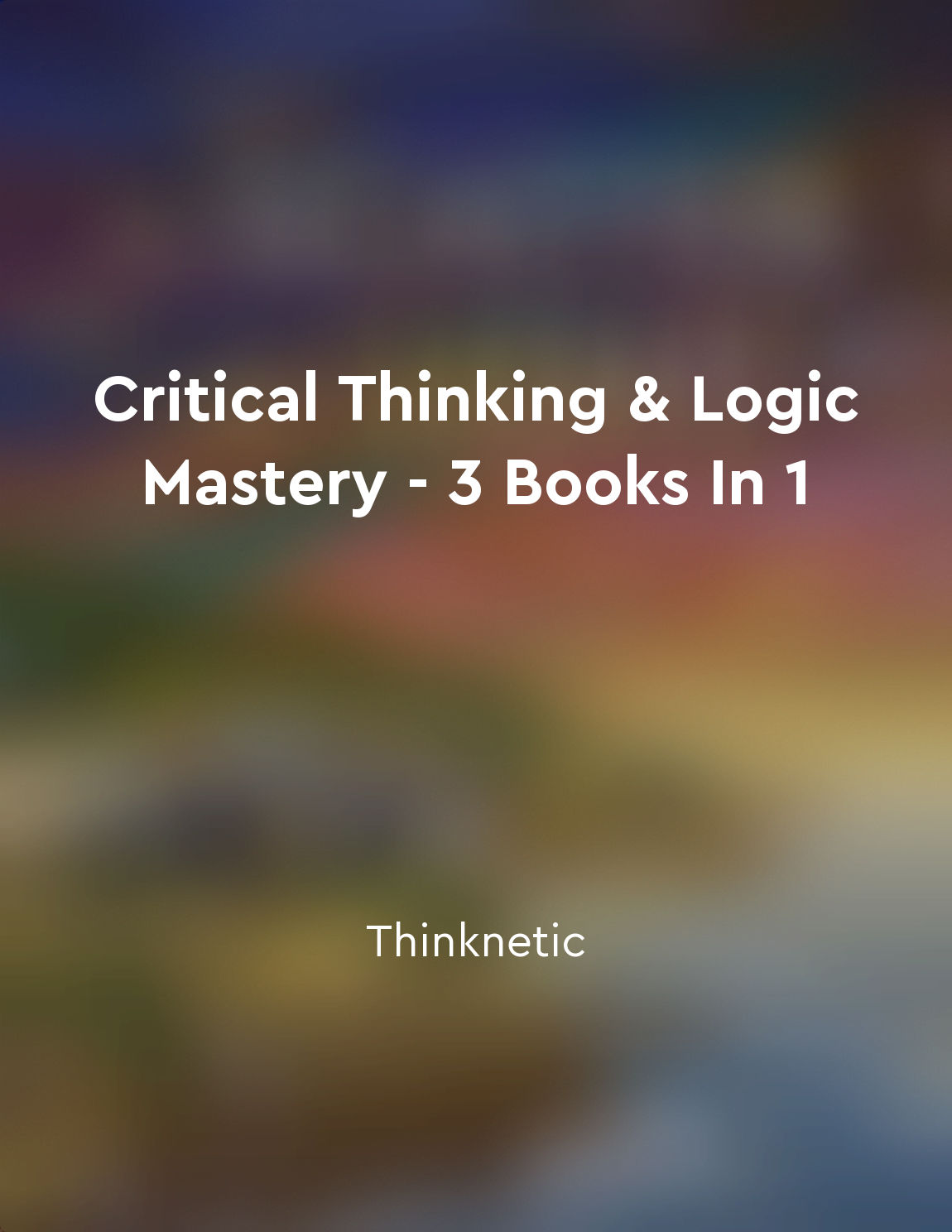Evaluate the reliability of sources when gathering information from "summary" of The Art of Clear Thinking by Patrick King
When you're gathering information, one of the most important things to keep in mind is the reliability of your sources. It's easy to think that just because something is written down or said confidently, it must be true. But the truth is, not all sources are created equal. Some are more reliable than others, and it's up to you to evaluate the credibility of the information you're receiving. One way to evaluate the reliability of a source is to consider the author's expertise on the subject. Are they a reputable expert in the field, or are they just expressing an opinion? It's important to look at the author's credentials and background to determine whether they are qualified to speak on the topic at hand. This can give you a better idea of how trustworthy their information is. Another factor to consider when evaluating the reliability of a source is its accuracy. Does the information presented align with what you already know to be true? Are there any inconsistencies or red flags that suggest the information might not be reliable? It's crucial to fact-check and verify the information you receive from a source before taking it at face value. Furthermore, consider the bias of the source. All sources have some degree of bias, whether conscious or unconscious. It's important to be aware of any potential biases that may be present in the information you're receiving and to take them into account when evaluating the reliability of the source. Look for balanced and objective sources that present information in a fair and unbiased manner. In addition, consider the timeliness of the information. Is the source up to date, or is it outdated? Information can quickly become irrelevant or inaccurate as new research emerges or circumstances change. It's essential to ensure that the information you're gathering is current and reflects the most recent developments in the field.- Evaluating the reliability of sources when gathering information is crucial for making informed decisions and forming accurate conclusions. By considering factors such as the author's expertise, accuracy, bias, and timeliness, you can better assess the credibility of the information you receive and ensure that you're relying on trustworthy sources. Always remember to critically analyze and verify the information you encounter to ensure that you're basing your decisions on solid and reliable evidence.
Similar Posts

Cultivate a strong personal brand
Building a successful career isn't just about excelling at your job - it's also about how you present yourself to the world. On...
Be mindful of your body language and nonverbal cues
Our body language and nonverbal cues speak volumes about our thoughts, feelings, and intentions. They can convey more than word...
Embrace discomfort and challenges
To successfully navigate the ever-changing world order, it is imperative to develop the mindset of embracing discomfort and cha...
Continuously refine and improve your thinking skills
To become a clear thinker, one must always be in the process of refining and improving their thinking skills. This is not a one...
Use mirror and matching techniques
Mirror and matching techniques are powerful tools in the art of persuasion. By mirroring someone's behavior, such as their body...
Strive for selfawareness
The concept of striving for self-awareness is essential in the journey of personal growth and understanding. It involves a deep...

Understanding logical fallacies can prevent errors in reasoning
Understanding logical fallacies is crucial in developing strong critical thinking skills. By being able to identify and avoid l...

Seeking social support can aid in overcoming negative thoughts
When negative thoughts start to weigh you down, one effective strategy to counter them is seeking social support. Talking to so...
Connecting emotionally with others is crucial
In a world where technology is constantly evolving, one thing remains constant: the importance of emotional connections. This c...
Foster a positive and upbeat demeanor
Creating a positive and upbeat demeanor is essential when trying to make a good impression on others. People are naturally draw...

